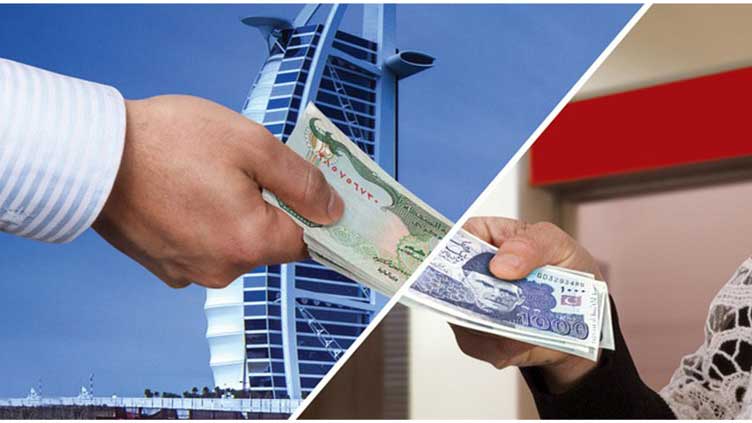Economic canvas of Pakistan in 2023

Business
Unprecedented inflationary pressures and high prices left a profound impact on masses
By M. Jahangir Hayat
The economic canvas of Pakistan in 2023 reflects both challenges and resilience. Navigating forward requires a holistic approach, considering the policy reforms, international collaboration and commitment to improving the lives of the people.
Balancing short-term economic goals with long-term sustainability remains the key to building a resilient and prosperous Pakistan.
Inflation and political instability: It is imperative to address the significant challenges that have cast a shadow on the lives of the people of Pakistan.
A pivotal factor has been persistent issue of the inflation, coupled with the continuous political instability, especially during the sixteen months of the PDM coalition government.
This period witnessed a substantial deterioration in the economic well-being of the masses.
Unprecedented inflationary pressures and skyrocketing prices have left a profound impact on the daily lives of the populace. In the over 16 months of PDM coalition government, inflationary pressures manifested in soaring prices, with petrol prices nearly doubling from Rs150 to almost Rs300 per litre.

This drastic hike in the fuel cost reverberated across various sectors, compounding the challenges faced by ordinary people. The ripple effect extended to essential commodities such as electricity, flour, sugar, and ghee, whose prices touched record high.
Read more: Bread or bill – millions battle the hard choice
The upward trajectory of electricity prices further exacerbated the challenges faced by consumers. The increased cost of electricity directly translated into higher bills, burdening households and businesses alike.
In tandem, essential food items like flour, sugar and ghee witnessed unprecedented price hike, creating formidable challenges for the families to afford basic necessities. These spikes not only strained household budgets but also intensified the debate around economic policies and their impact on the lives of the common man.
Continuous political instability, marked by shifts in government and coalition dynamics, played a contributory role in exacerbating economic challenges. Uncertainty in governance can breed hesitancy among investors and businesses, potentially stalling economic growth initiatives.
The culmination of these factors has led to strained household budgets and a tangible socioeconomic impact on the people of Pakistan. Families found themselves grappling with the dilemma of allocating resources to meet basic needs amidst rising prices and economic uncertainties.
The increased cost of living, particularly in terms of fuel, electricity, and essential commodities, created a burden that disproportionately affected the lower-income segment of society.
As the nation navigates these challenges, there arises a pressing need for effective measures and a reassessment of economic policies to address the economic concerns of the people. Striking a balance between economic growth and ensuring affordability for the average citizens becomes paramount.
Policy initiatives that focus on curbing inflation, stabilising prices of essential commodities and instilling confidence through political stability are essential for fostering an environment where economic prosperity is inclusive and sustainable.
Stock market surge and economic revival initiative: One of the defining features of Pakistan’s economic journey in 2023 has been the remarkable surge in the stock market, especially exemplified by the KSE-100 index.
Must Read: KSE-100 continues making history, crosses 56,000 mark with an over 2pc surge
November witnessed an unprecedented 33 per cent increase, which means the index went beyond the historic 67,000 mark in December. The surge can be attributed to a series of economic revival initiatives, indicating a gradual but promising path to recovery.

The stride of these initiatives has driven a surge in economic activity, setting a positive tone for the overall economic outlook.
Monetary policy has played a pivotal role in bolstering market confidence. November’s successful IMF review further reinforced positive sentiments, signalling international validation of Pakistan’s economic measures.
Additionally, reforms in exchange companies and a reduction in illicit transactions have contributed to a stable exchange rate.
The Large Scale Manufacturing (LSM) emerged as a beacon of hope, demonstrating a positive trend for the second consecutive month. It posted a growth of 1.0 per cent in September 2023.
The sector has rebounded after several months of decline, marking a pivotal moment in the economic recovery. Factors such as stability in exchange rate, eased supply disruptions due to the removal of import restrictions, and improved dollar liquidity have collectively fuelled this upswing.
The agriculture sector indicators painted a positive picture. The input situation shows signs of growth, with farm tractors production and sales experiencing an increases of 55.1 per cent and 86.8 per cent, respectively during July-October FY2024.
October 2023 witnessed a 6.8 per cent growth in urea and a staggering 122 per cent increase in DAP offtake compared to the same period in the previous year. These figures signify a positive trajectory for Rabi crops.
On the front of fiscal discipline and reduced deficit, the first quarter of FY2024 showcased health growth in revenues outpacing expenditure. Both tax and non-tax collections contributed to a significant rise in total revenue, with non-tax collection.
As a result, the fiscal deficit reduced to 0.9 per cent of GDP in July-Sept FY2024 from 1.0 per cent of GDP the previous year.

Remittance has been the crucial component of Pakistan’s economy and the same has exhibited positive trends as month on month (MoM), remittances increased by 11.5 per cent in October 2023 ($2.5 billion) compared to September 2023 ($2.2 billion), and YoY growth stood at 9.1 per cent.
Know more: Workers' remittances record $2.2bn inflow in Sept
Structural reforms related to the foreign exchange market and the convergence of exchange rates in interbank and open markets played a significant role in this growth.
Going ahead: As Pakistan is passing through a complex landscape, it is essential to acknowledge the multifaceted nature of challenges and opportunities. While positive economic signals and recovery indicators provide optimism, addressing the negative impact of inflation and political instability on people’s lives remains paramount.
Balancing economic growth with social considerations becomes the cornerstone of a sustainable growth.


